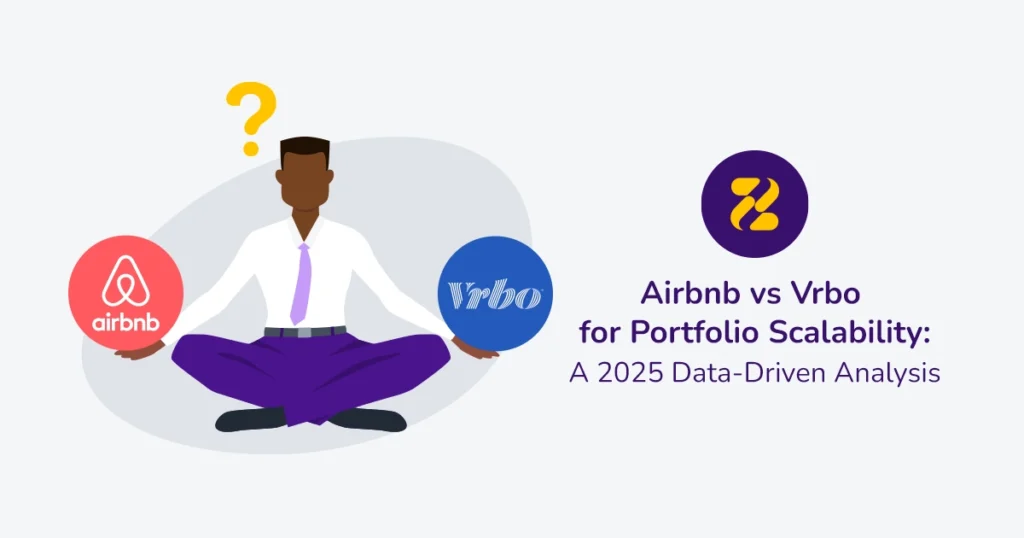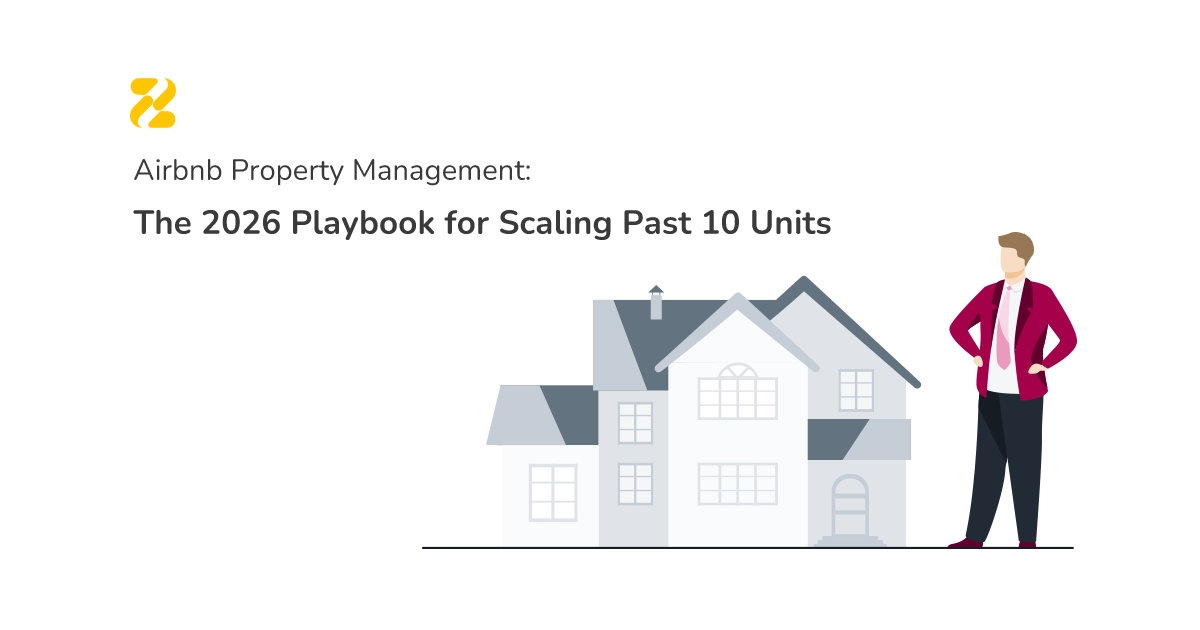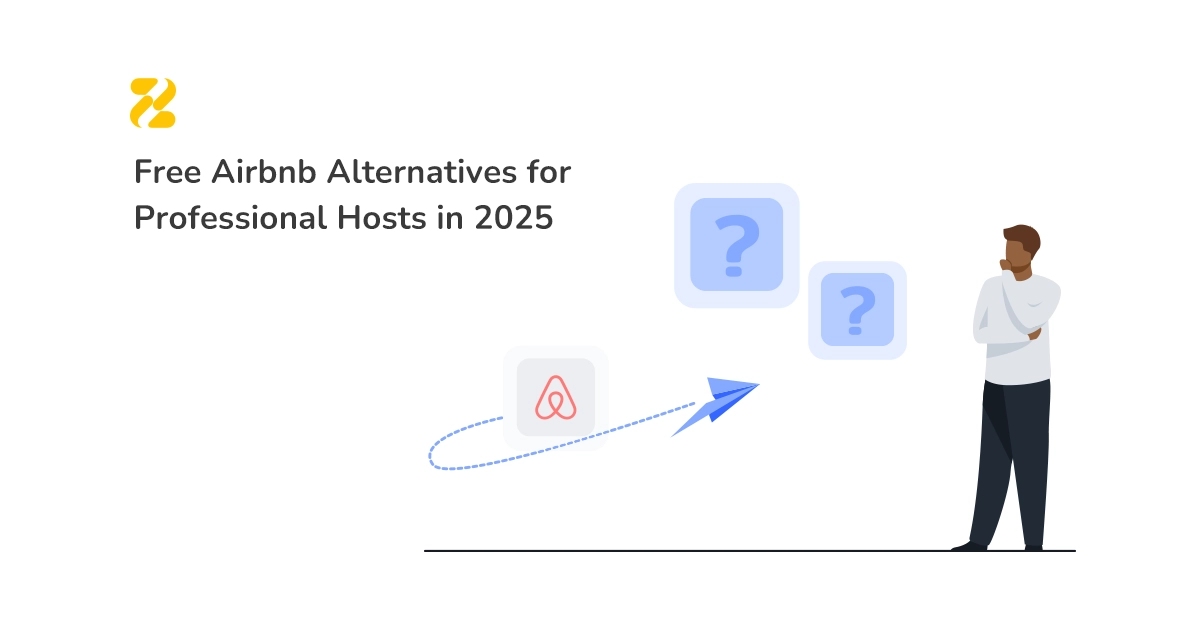Choosing your OTA mix is a critical business decision. It goes far beyond simply getting bookings. For property managers with growing portfolios, the Airbnb vs Vrbo debate is a strategic choice. It impacts your revenue, operational load, and brand scalability. This is not just another comparison. It is a business analysis designed to help you make smarter, data-driven decisions to grow your portfolio profitably.
Forget the traveller’s perspective. We are diving deep into the factors that matter to you as a professional operator: fees, guest demographics, cancellation policies, and market positioning. Let’s analyse which platform, or combination of platforms, will truly fuel your growth in 2025.
Table of Contents
The Financial Deep Dive: A Strategic Look at Host Fees
Relying on a single channel feels simple. But this dependency quietly eats into your profits. Both platforms charge service fees, but their structures are fundamentally different, creating distinct opportunities for savvy managers.
- Airbnb’s Fee Structure: Most hosts use the ‘split-fee’ model. You pay around 3%, while the guest pays a service fee of up to 14.2%. However, many software-connected managers are moved to a ‘host-only’ fee of 14-16%. This simplifies guest pricing but puts the full commission cost on you.
- Vrbo’s Fee Structure: Vrbo offers two paths. You can pay per booking, which is typically a 5% commission plus a 3% payment processing fee. Or, you can pay a flat annual subscription of £366. This subscription covers all bookings for a single property for the year.
Scalability Analysis: For a portfolio of high-value properties with consistent bookings, Vrbo’s annual subscription can be significantly more profitable. It removes the percentage-based commission, allowing you to keep more of your revenue. In contrast, Airbnb’s split-fee model keeps your upfront costs low, but the host-only fee can be substantial. The key is to analyse your average booking value and occupancy to determine your break-even point.
The Guest Equation: Matching Your Properties to the Right Audience
Your properties are not for everyone. Aligning your portfolio with the right guest demographic is vital for securing good reviews and repeat bookings. Airbnb and Vrbo attract fundamentally different travellers.
- Airbnb’s Audience: This platform attracts a younger, more diverse crowd. Think millennials, solo travellers, and couples looking for shorter, often budget-conscious, stays. They are drawn to unique, experience-driven properties in urban areas.
- Vrbo’s Audience: Vrbo is the go-to for families and larger groups. These guests are often older, more affluent, and book longer stays in traditional vacation destinations like beach towns or mountain regions. They prioritise privacy and space, which is why Vrbo focuses exclusively on entire-home rentals.
Scalability Analysis: Understanding Vrbo vs Airbnb guest demographics is key to optimising your listings. If your portfolio consists of large, family-friendly homes, Vrbo is your prime channel. If you manage chic city apartments, Airbnb offers greater visibility. For a diverse portfolio, a presence on both is essential to maximise your reach.
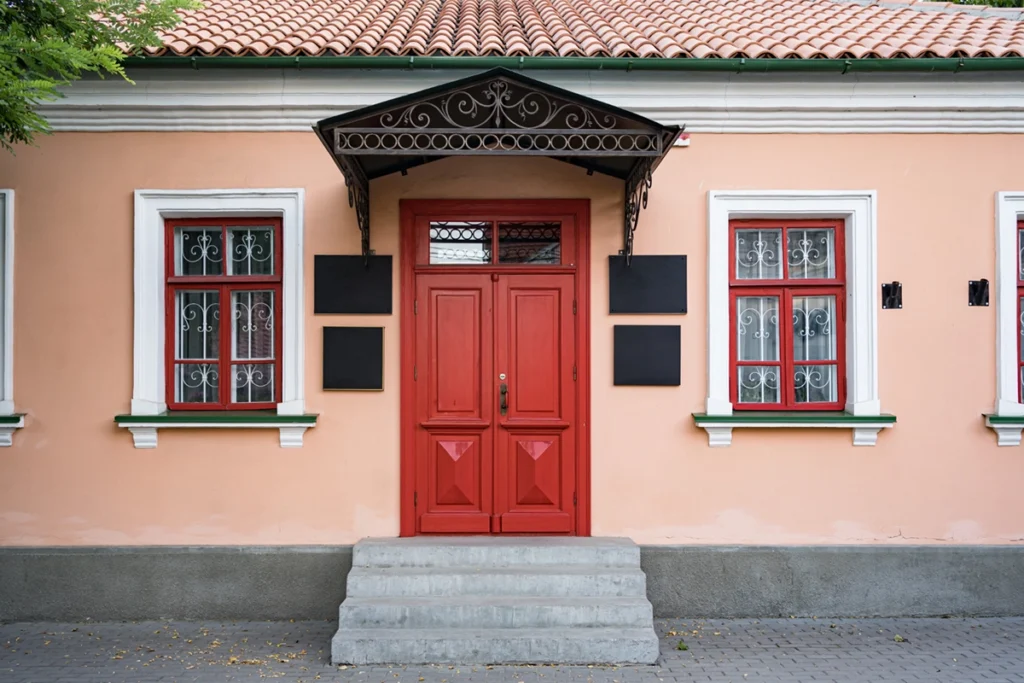
The Strategic Landscape: Market Share and Property Types
While Airbnb is the global giant, market share isn’t the only metric for success. Niche dominance can be more profitable than broad visibility.
Airbnb holds an estimated 44% of the global market, making it a powerhouse for brand recognition. This massive reach provides incredible visibility. However, it also creates a highly competitive environment where your listings must fight to stand out.
Vrbo has a smaller global share at around 9% but holds a much stronger position in the U.S. vacation market. Its focus on entire homes means less competition for managers with larger properties. In some destination markets, Vrbo can deliver more high-value bookings than Airbnb. The Airbnb vs Vrbo market share 2025 data shows that while Airbnb leads, Vrbo is a formidable competitor in its niche.
Operational Realities: Cancellations and Host Protection
Operational resilience is crucial for scaling. How each platform handles cancellations and protects hosts can significantly impact your bottom line and workload.
- Cancellation Policies: Vrbo is generally considered more “host-friendly,” offering stricter cancellation policies that protect your revenue from last-minute changes. Airbnb provides more flexible options for guests, which can attract more bookings but also increases the risk of cancellations. Understanding Airbnb vs Vrbo cancellation policies for hosts helps you forecast revenue more accurately.
- Host Protection: Airbnb’s AirCover provides comprehensive protection, including up to £2.5 million in damage protection and around £820,000 in liability insurance. Vrbo offers around £820,000 in liability insurance, but damage protection is an added cost or requires a security deposit from the guest.
Scalability Analysis: For a large portfolio, Airbnb’s inclusive damage protection simplifies operations and reduces financial risk. However, Vrbo’s stricter cancellation policies can provide more predictable income, which is vital for financial planning.
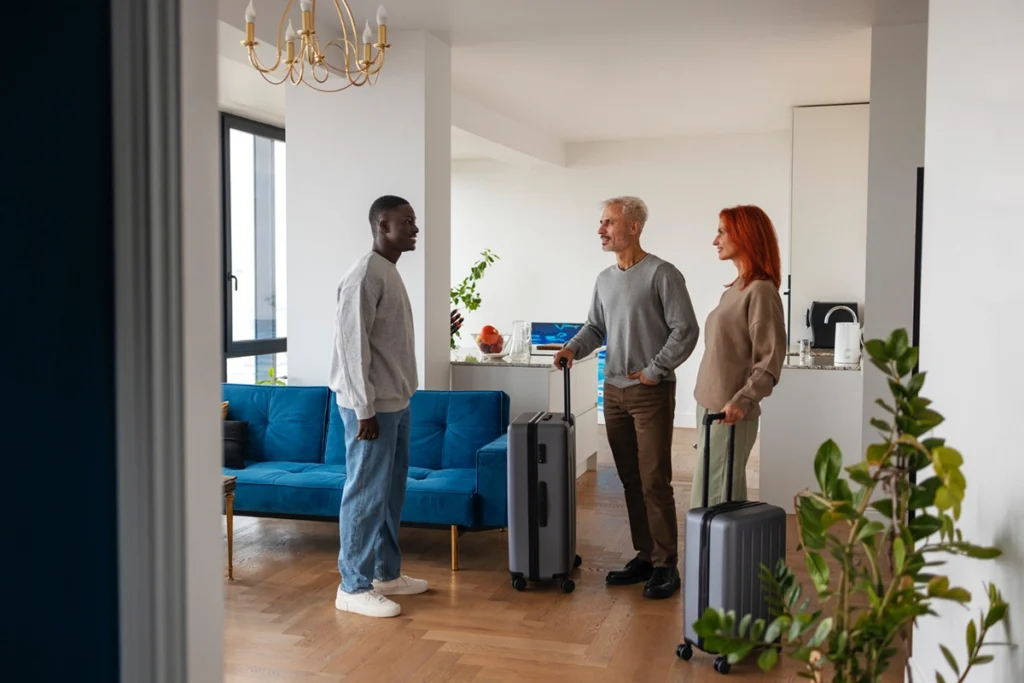
The Verdict: A Multi-Channel Strategy is the Only Way to Scale
So, which platform wins in the Airbnb vs Vrbo showdown? The answer for a scaling property manager is neither. The smartest strategy is not to choose one, but to leverage the unique strengths of both. Relying on a single channel is like trying to build a house with only one tool – it’s inefficient and risky.
The challenge, of course, is that managing multiple platforms manually is a recipe for double bookings and operational chaos. Juggling calendars, updating prices, and responding to messages across different systems is simply not scalable. This multi-channel complexity is why a robust Vacation Rental Channel Manager is no longer a luxury but the core engine of a scalable operation. It centralises your listings, syncs your calendars in real-time, and empowers you to control your entire portfolio from one place.
Conclusion: Key Takeaways for Portfolio Growth
For property managers scaling their portfolio, the Airbnb vs Vrbo decision is not about choosing one platform, but about strategically leveraging both. Key differences lie in their fee structures (Airbnb’s split-fee vs Vrbo’s subscription option), guest demographics (Airbnb’s younger, urban travellers vs Vrbo’s families in vacation spots), and host policies (Airbnb’s broader insurance vs Vrbo’s stricter cancellations).
A successful scaling strategy requires a multi-channel approach, managed through a powerful channel manager to maximise revenue and operational efficiency across both platforms.
Image by pch.vector on Freepik.


